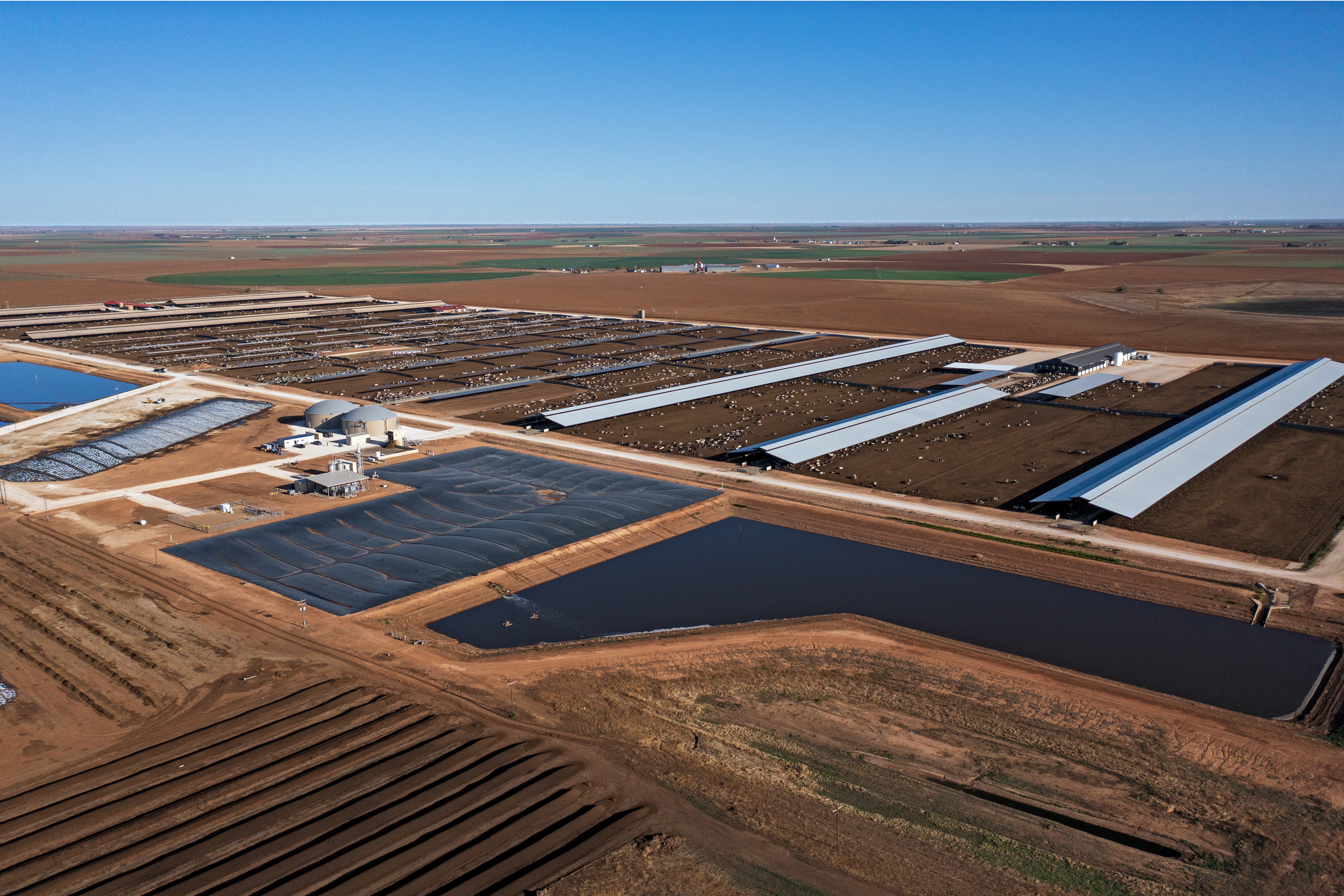Clean Energy, TotalEnergies First Renewable Natural Gas Facility Begins to Sell Environmental Credits
(P&GJ) — Clean Energy Fuels Corp. and TotalEnergies SE have announced that renewable natural gas (RNG) from Del Rio Dairy in Friona, TX, began flowing in June to the transportation market and recently began generating D3 renewable identification numbers (RINs) credits under the U.S. Environmental Protection Agency’s (EPA) Renewable Fuel Standard, as well as credits through Oregon’s low carbon fuel standard (LCFS) program.

The RNG produced at Del Rio Dairy and injected into the country’s natural gas pipeline system represents a major milestone in Clean Energy’s strategy to become the leader in both producing and selling a fuel that is so clean, the California Air Resources Board gives it an average carbon-intensity rating of -331.
“The demand for RNG is only increasing,” said Clay Corbus, senior vice president of renewables at Clean Energy. “There is no easier or immediate way for fleets to achieve their goals to reduce carbon emissions than transitioning their trucks, buses, or other large vehicles to RNG. Turning the challenge of managing manure at large dairies like Del Rio Dairy into something so positive like an ultra-low carbon fuel is a huge win for all parties.”
Clean Energy broke ground at the Del Rio Dairy biogas digester in November 2021, completed construction in February 2023, and stored the RNG produced until regulatory approval in June. Del Rio Dairy is the first low carbon-intensity RNG project completed by Clean Energy and was financed through a joint venture between Clean Energy and TotalEnergies. The multi-generational, family-owned and operated dairy has 7,500 milking cows.
Agriculture accounts for nearly 10% of U.S. greenhouse gas (GHG) emissions and the transportation sector accounts for another 28%, according to the EPA. Capturing methane from farm waste lowers these emissions. RNG, produced by that captured methane and used as a transportation fuel, significantly lowers GHG emissions on a lifecycle basis when compared to diesel. This allows RNG to be one of the only fuels to receive a negative carbon-intensity score based on the reduction of emissions at the source and at the vehicle.
Related News
Related News

- Keystone Oil Pipeline Resumes Operations After Temporary Shutdown
- Freeport LNG Plant Runs Near Zero Consumption for Fifth Day
- Biden Administration Buys Oil for Emergency Reserve Above Target Price
- Mexico Seizes Air Liquide's Hydrogen Plant at Pemex Refinery
- Enbridge to Invest $500 Million in Pipeline Assets, Including Expansion of 850-Mile Gray Oak Pipeline




Comments